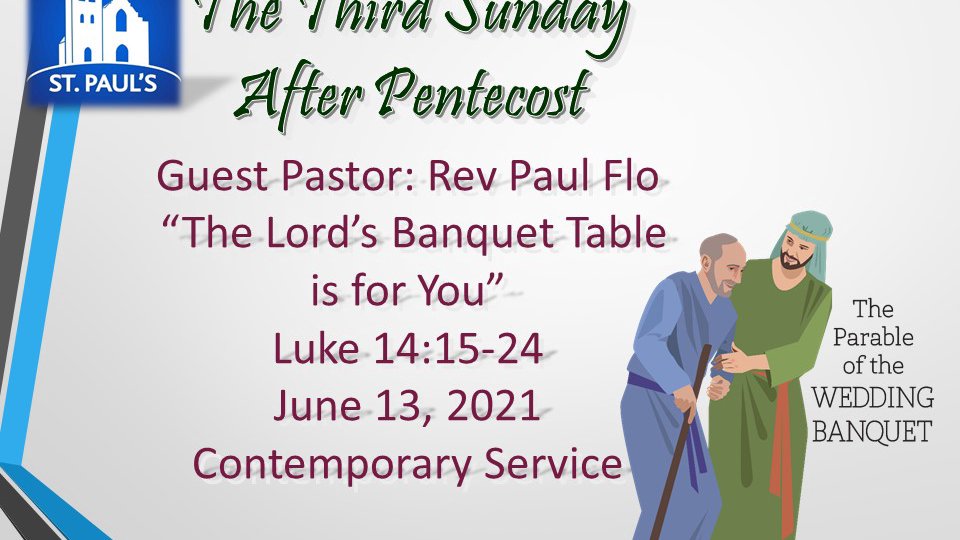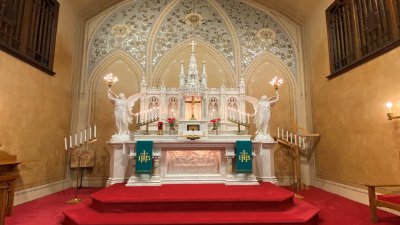Wisdom has issued an invitation to the divine feast: “Come, eat of my bread and drink of the wine I have mixed. Leave your simple ways, and live, and walk in the way of insight” (Prov. 9:5–6). This is the call of the Spirit of Christ to believe the Gospel and to receive His saving gifts in the Holy Supper. Many make excuses and reject this invitation, even as the Jews did in the days of Jesus, yet the Master’s house will be filled. The Gospel call therefore goes out to the lowly and despised, into the highways, even to all the Gentiles (Luke 14:15–24). For “you who once were far off have been brought near by the blood of Christ” (Eph. 2:13–22). In Christ, believing Jews and Gentiles are no longer strangers but fellow members of the household of God. The enmity of class and race is put to death through the cross. Having been reconciled in the one Body of Christ, we are enabled to love one another (1 John 3:13–18) as we await the marriage feast of the Lamb in His kingdom which will have no end.

06/13/21 Contemporary Service
“The Lord’s Banquet Table is for You” Luke 14:15-24
June 13, 2021 • Rev. Paul Flo
04/21/24 Traditional Service
April 21, 2024
One of the small but interesting features of many cathedral and monastery churches in Europe and other places is presence of misericords. A misericord is a small wooden shelf attached to the underside of a folding seat in a church, often in the choir area. Misericords physically supported people at worship during long periods of standing during extended prayer and other services when sitting was not permitted. The term “misericord” means “pity of the heart.” That word is part of the church phrase Misericordia Domini, a Latin term for describing the acts of mercy of God to His people. Jesus, the Good Shepherd, constantly and consistently shows acts of mercy to us as His people. His care comes straight from the heart!
04/21/24 Praise Service
April 21, 2024
One of the small but interesting features of many cathedral and monastery churches in Europe and other places is presence of misericords. A misericord is a small wooden shelf attached to the underside of a folding seat in a church, often in the choir area. Misericords physically supported people at worship during long periods of standing during extended prayer and other services when sitting was not permitted. The term “misericord” means “pity of the heart.” That word is part of the church phrase Misericordia Domini, a Latin term for describing the acts of mercy of God to His people. Jesus, the Good Shepherd, constantly and consistently shows acts of mercy to us as His people. His care comes straight from the heart!
04/14/24 Praise Service
April 14, 2024
AS WE GATHER “Amazing” is a commonly used word in the English that has a rich history. It came into common usage in the 14th century as a variant of the older root word “amasod,” which meant stupefied or confounded or overwhelmed with sudden surprise or wonder. The word “amazing” shows up several times in hymns that we sing—from describing the action of God in the birth of Jesus as “love amazing” (LSB 375:1) to bringing to our hearts and minds that in His suffering to pay the price of our sins, our Lord showed “amazing pity” (LSB 437:2). Two other hymns refer to the “amazing grace” of God (LSB 744:1; 558:2), and in another hymn, the author of the text rejoices that God “has done amazing things to me” (LSB 934:2). The season of Easter is a time for us to be truly amazed and filled with the praise of our amazing Lord!





